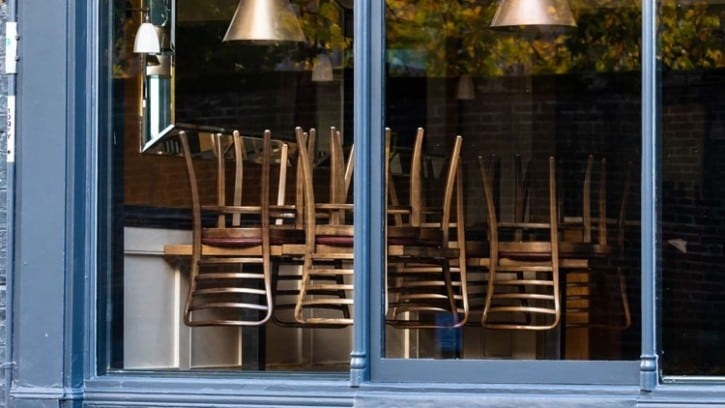Data from Buchler Phillips Hospitality Index, which compiles monthly company insolvency figures from the Government’s Insolvency Service, showed 1,706 accommodation and food service firms including pubs, hotels and restaurants closed in the six months to June 2025.
This was down by 5.5% from 1,806 compared to the first half of 2024, according to Government data.
However, the sector quarter saw a 6.5% rise over the first quarter with 880 firms in trouble.
The number of monthly hospitality insolvencies has remained over 270 so far this year.
The Buchler Phillips Hospitality Index of Insolvencies tracks monthly figures and has done since January 2014.
Pressure on consumer spending
It has increased from 181.2 in March to 197.3 in June while it peaked in August 2023 at 273.4.
Buchler Phillips managing director Jo Milner said: “It’s not getting any easier out there, if anything, it’s tougher.
“Hospitality is stuck near the top of the insolvency league table for now, anchored there by pressure on consumer spending and a number of forces behind higher staff costs.”
Businesses that have recently hit the headlines after closing sites include BrewDog, which revealed it was shuttering 10 venues with the reasons cited for the closures as size, location and other limiting factors as well as the continued challenges facing the wider UK hospitality industry such as rising costs, increased regulation and economic pressures.
It also cited the recent news that Oakman entered administration and closed six sites.
Moreover, while insolvencies are rising steadily, the hike isn’t as sharp as last year, according to audit, tax and consulting firm RSM UK.
Worrying but not unexpected trend
Partner and head of leisure and hospitality Saxon Moseley said: “We’ve not hit the heights of last year’s spike but insolvencies continue to creep up, which is a worrying but not unexpected trend.
“The hospitality industry has been acutely hit with higher staff costs and rising inflation and when you overlay subdued sales, continuing to operate has become unviable for some.
“With many operators still in survival mode, the industry is struggling and as a key job creator, particularly for young workers, a fragile hospitality industry presents an economic headache for the UK.
“Taking steps to overhaul the business rates system, plus supporting the industry to respond to recent tax increases would allow for operators to not only weather the storm but invest in jobs for the future.”
Previous analysis of official data by accountancy firm Price Bailey found insolvencies across the pub sector surged in April, following the hikes to national insurance contributions and wages.
The research showed 67 pubs were lost for good in April this year - the highest level since last July when 74 entered insolvency.
These insolvencies were attributed to a rise in the rate of national insurance contributions in April alongside the threshold for the tax being cut.





